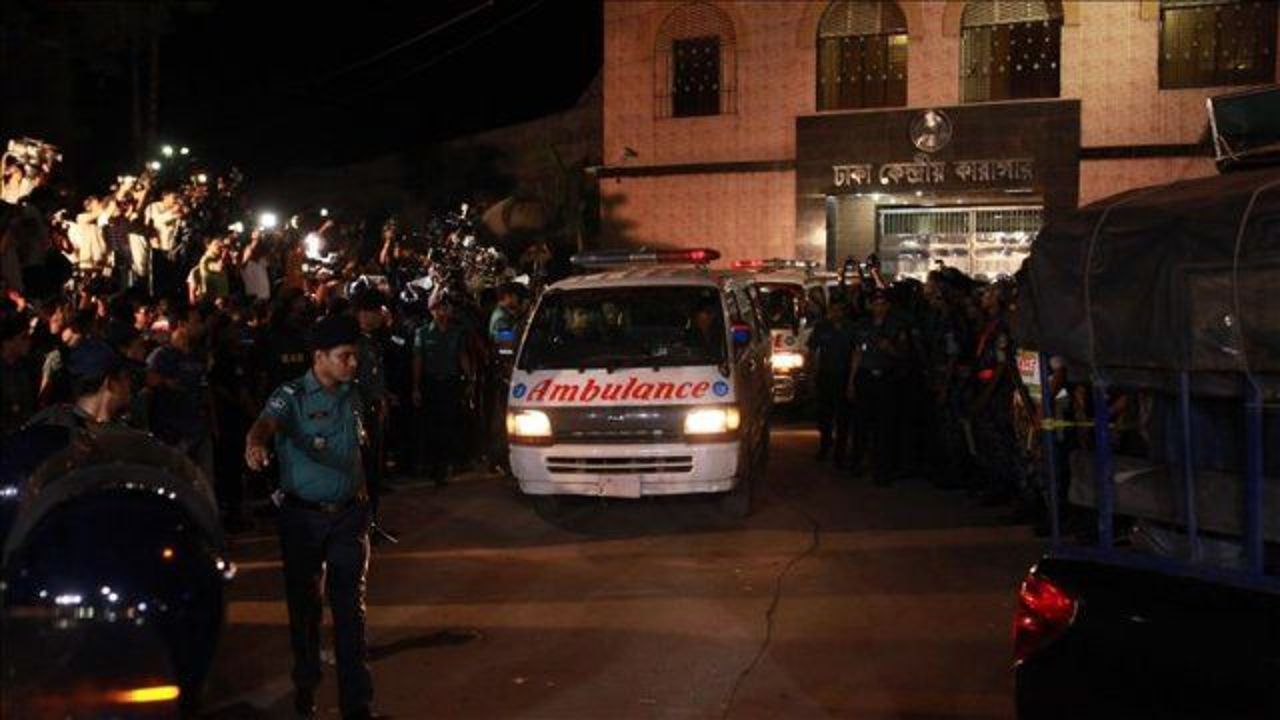Pakistanis blast execution of Jamaat-e-Islami leader
Pakistani rights activists and politicians joined top international and Turkish figures Wednesday in denouncing Bangladesh's execution of Jamaat-e-Islami leader Motiur Rehman Nizami, warning the move could deepen polarization in the impoverished nation.

“First of all, I am totally against capital punishment,” Asma Jehangir, a senior lawyer and former head of the Human Rights Commission of Pakistan, told Anadolu Agency. “Secondly, due justice has been denied.”
Jehangir was among four Pakistanis to receive a Friend of Bangladesh award from Prime Minister Sheikh Hasina in 2013 for her opposition to Pakistan’s 1971 intervention in Bangladesh.
“Bangladesh should go for reconciliation rather than revenge,” she said. “Otherwise, I see deep polarization in Bangladeshi society.” She warned that executions for war crimes would aggravate extremism in Bangladesh.
She added: “This is natural that when you oppress a certain group of society for their political and religious beliefs – there is always a backlash. Politics is not justice. It is a way to create an atmosphere where everyone can live in peace and harmony.”
Nizami, 73, was executed early Wednesday after being convicted of genocide, rape and torture linked to a militia that helped the Pakistani army identify and kill pro-independence activists during the country’s 1971 War or Independence.
He was the fifth and the highest-ranked opposition leader to be executed since Hasina set up a war crimes tribunal in December 2013.
Intekhab Alam Suri, chairman of Pakistan's Human Rights Network, blasted the execution of Nizami and others for war crimes as a “mockery of justice”.
“There was everything in Nizami’s trial except justice,” he said. “It was a bogus trial on the basis of cooked-up evidence after a period of 45 years. It seems the Hasina government has decided in principle to hang her political opponents in the name of war crimes”.
Siraj-ul-Haq, the chief of Jamaat-e-Islami Pakistan, blamed the “criminal silence” of the Pakistani government for Nizami’s execution.
“If the government had been active and approached the United Nations and other international forums, it could have stopped the Hasina Wajed government from executing Maulana Nizami,” he said in a statement.
Speaking to an Anadolu Agency correspondent in Islamabad, Jamaat-e-Islami foreign relations official Abdulgaffar Azeez said that among world Muslim leaders, only Turkish President Recep Tayyip Erdogan has spoken out against Nizami's execution and other executions in Bangladesh.
"He [Erdogan] has been against the executions in Bangladesh from the beginning," Azeez said. "All Bangladeshi people knew that the crimes that were attributed to Nizami were unreal."
Azeez added that the government in Dhaka wants to "destroy any obstacle that causes a threat to the Indian presence in Bangladesh".
Due process problems
Pakistan’s National Assembly on Wednesday passed a resolution denouncing the execution. Presented by Defense Production Minister Rana Tanvir Hussein, the resolution described the execution as unjust and called on the Bangladeshi government to desist from unjust trials and executions.
“This act is aimed at sprinkling salt on 25-year-old wounds,” the bill said.
Railways Minister Khawaja Saaad Rafiq added: “This is not an issue related to a particular political party. This is a matter of ideology. I as a Pakistani feel ashamed for Nizami’s execution. Hasina’s lust for blood is still not over.”
Turkish religious authority condemns execution
Turkey’s chief cleric also condemned the execution, saying despite Turkey’s efforts, “Unfortunately, the execution could not be prevented.”
Religious Affairs Directorate head Mehmet Gormez said that the execution had nothing to do with the law, calling it a “political move” and a “mistaken method” used to keep society under pressure. He also criticized the lack of global response from the “modern world”.
A spokeswoman for the UN High Commissioner for Human Rights in London said there were concerns over the case.
“Serious due process problems have been raised by our office and several UN human rights experts, including the lack of adequate access to legal assistance and the lack of equality of arms between the prosecution and the defense,” the Cécile Pouilly said.
Amnesty International described the execution as “deplorable”. In a statement, Champa Patel, the group’s South Asia director, said: “We are dismayed that Bangladeshi authorities have executed Motiur Rehman Nizami.
“The victims of the horrific events of the 1971 Liberation War are entitled to justice, but taking another life is not the answer.”
Nizami's execution also created reaction in some European countries.
Germany said death penalty was inhuman and cruel in a foreign ministry statement.
France’s foreign ministry, in a statement to Anadolu Agency, expressed sorrow over Nizami’s execution and reiterated its rejection of capital punishment.
Nizami’s execution was also condemned by the International Union of Muslim Scholars. The group’s General Secretary Ali Muhiuddin al-Qurra Daghi issued a written statement calling the execution an “unjust and political” verdict.
Noting that the Bangladeshi government ignored calls to stay the execution, Qurra Daghi accused the international community for staying silent in cases concerning Islam and Muslims.
Symbolic funerals for Nizami held in several Pakistani cities were attended by thousands of people.
Anadolu Agency







